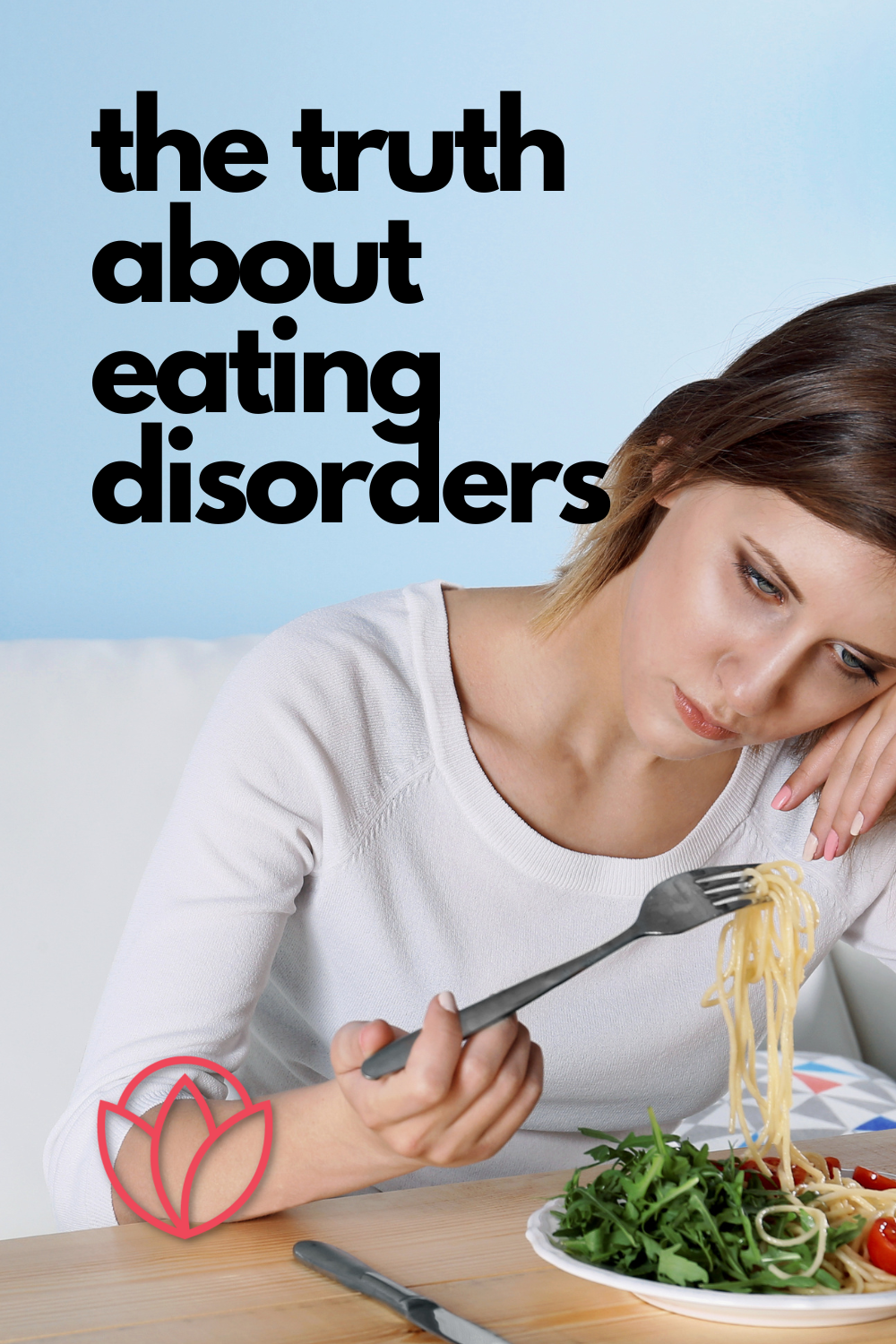February 20-26, 2023 is National Eating Disorders Awareness Week.
 I was a teenager when the movie Center Stage came out in 2000. A teen drama, the plot centered around a group of dancers enrolled at the fictional American Ballet Academy in New York City. To my young eyes, their lives seemed so fun! So glamorous! So exciting!
I was a teenager when the movie Center Stage came out in 2000. A teen drama, the plot centered around a group of dancers enrolled at the fictional American Ballet Academy in New York City. To my young eyes, their lives seemed so fun! So glamorous! So exciting!
One of the ballerinas, Maureen, was particularly arresting in her role as one of the Academy’s biggest shining stars. Maureen developed a romance with Jim, a pre-med student, and over the course of the movie, it was slowly revealed that she was a closet bulimic. Her disorder became impossible to hide as their relationship progressed, and Jim, concerned to find that Maureen was making herself throw up after meals, confronts her. Maureen lashes out at him, calling him a nobody. It isn’t until later on in the film that Maureen realizes that she has an eating disorder and needs help. She turns to her mother, telling her that she throws up half the things she eats. Her mom’s response? “You watch your weight. There’s nothing wrong with that.”
This particular subplot from the story really resonated with me because growing up, my weight and appearance were constantly remarked upon. Aunties (relatives and family friends alike), thinking they meant well, would make comments like “Wow, someone’s being fed well at home!” or “Your cheeks are looking chubby.” These comments were usually accompanied by questions like, “Have you eaten yet?” or “Are you hungry?”- basically a barrage of mixed messaging. What’s a young, impressionable kid supposed to think?
Eating Disorders in the United States
 According to Mental Health America, 20 million American women and 10 million American men will develop an eating disorder at some point in their lives. Eating disorders do not discriminate, and affect all, regardless of gender, race, ethnicity, socioeconomic status or sexual orientation. Most eating disorders develop in the teen and young adult years, but they can develop at other ages, too.
According to Mental Health America, 20 million American women and 10 million American men will develop an eating disorder at some point in their lives. Eating disorders do not discriminate, and affect all, regardless of gender, race, ethnicity, socioeconomic status or sexual orientation. Most eating disorders develop in the teen and young adult years, but they can develop at other ages, too.
There are 4 main categories of eating disorders: anorexia nervosa, bulimia nervosa, binge-eating disorder, and avoidant restrictive food-intake disorder. Binge eating disorder is the most common type of eating disorder in the United States, but a person suffering from any of these eating disorders may appear unusually preoccupied with food, body weight, and shape.
An eating disorder can be difficult to overcome by yourself; they can essentially take over your life! If you spot any red flags in a loved one (constantly skipping meals, excessive focus on healthy eating, withdrawing from social activities, excessive exercise, eating in secret), we encourage you to help them seek medical assistance. Early detection and intervention are vital to making recovery possible. Treatment will depend on the type of eating disorder that is diagnosed, but medication cannot cure a disorder. Talk therapy, or psychotherapy, can be used to help replace unhealthy habits with healthy ones.
Eating disorders often run in families, so sharing struggles with a trusted confidant could help. What questions about eating disorders do you have for us? Resources for support are listed below.
Resources:

- NEDA Helpline: Find someone to confide in today.
- Mental Health America
- Mayo Clinic: Eating Disorders Overview













